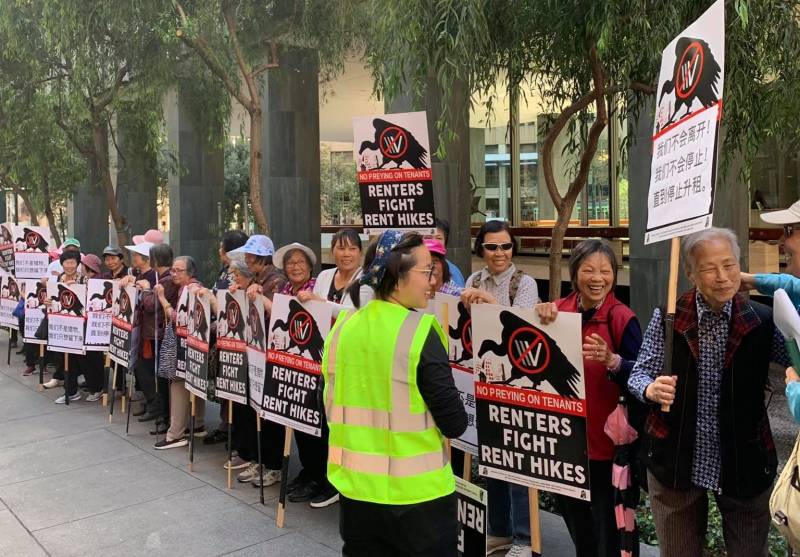WeChat began in China as a messaging app and over the years added additional functionality, including voice calling, video conferencing, and in-app payments. Because of the many functions integrated within the app, plaintiffs described it as a “super-app”.
WeChat is estimated to have more than a billion users worldwide, including 19 million in the United States, according to the plaintiffs’ complaint.
In San Francisco, the Chinese Progressive Association, grassroots organizers and politicians agree that a ban on WeChat would reduce access to a major communication tool within the city’s monolingual Chinese community, particularly in Chinatown.
KQED previously reported that Chinese tenants often depend on WeChat as a Chinese-language organizing tool to rally against big landlords like Veritas.
The plaintiffs, a nonprofit called the WeChat Users Alliance, cited KQED’s reporting, among other news stories, in their arguments against Trump’s WeChat ban.
The reprieve for WeChat comes a day after TikTok, an app owned by ByteDance, a company based in China, was rescued in a last-minute deal approved by Trump in which software company Oracle will serve as a custodian of U.S. user data, with a major investment from Walmart.
In its arguments against the WeChat Users Alliance, the U.S. Attorney’s Office contended that the app is used by the Chinese government for surveillance and data collection within the U.S. and that the order was a justified exercise of the president’s national security powers against a “foreign adversary whose hostile acts are undisputed, and whose aspirations for global dominance are undisputed.”
